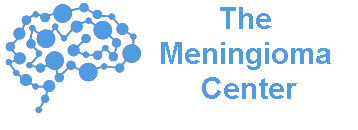TUBERCULUM SELLAE MENINGIOMA
Tuberculum Sellae Meningioma
Tuberculum sellae Meningioma is a tumor located deep in the middle part of the skull base. The tumor is tucked in under the back part of the frontal lobes of the brain. It arises from the meninges of a bone protuberance between both optic nerves, the so-called tubeculum sellae. As it grows it causes pressure on the optic nerves and the crossing of the optic nerve fibers called optic chiasma. The tumor has a close relation to important brain arteries such as the carotid arteries.
Symptoms
Tuberculum sellae Meningioma presents initially with unilateral loss of visual acuity and loss of temporal field of vision on the side of the most affected eye. These initial symptoms can progress with bilateral vision loss and or bilateral visual file loss.
Treatment
Treatment of tuberculum sellae Meningioma generally requires surgery if the patient presents with vision loss or significant optic nerve compression. Elderly patients with small tumors and minimal symptoms can be treated conservatively with surveillance MRIs. Radiation is generally not recommended because of the proximity to the optic nerves.
Surgical Treatment at the Meningioma Center
Option # 1
At the Meningioma Center, we conceptualized the focal orbital approach which can be used for the removal of tuberculum sellae Meningiomas. This approach associated with the extradural navigation concept allows access to this tumor without hazardous exposure, direct manipulation, or retraction of the brain. In selected cases, the focal orbital approach can be done through a small eyebrow incision. The approach allows for early and full decompression of the optic nerves which maximizes chances of visual recovery. Moreover, it enhances the potential for complete resection of the tumor including its meningeal roots
Option # 2
At the Meningioma Center, an endoscopic transnasal approach is an option for selected cases of tuberculum sellae Meningioma. This approach allows access to the root of the tumor through the nostrils using endoscopic tools without any manipulation of the brain. This approach requires the participation of our ENT endoscopic nasal surgery specialist.
Prognosis
Adequate surgical Treatment of tuberculum sellae Meningiomas using the focal orbital approach or the endoscopic nasal approach can allow full or partial recovery of visual difficulties. Moreover, patients have the potential for returning to their lifestyle and job occupation. Maximal removal of the tumor and its meningeal root minimizes the chances of any tumor recurrence.
